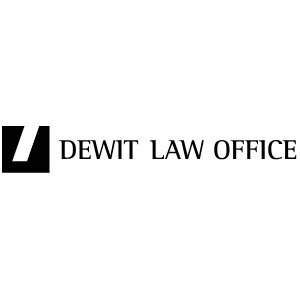Best Renewable & Alternative Energy Lawyers in Brussels
Share your needs with us, get contacted by law firms.
Free. Takes 2 min.
List of the best lawyers in Brussels, Belgium
About Renewable & Alternative Energy Law in Brussels, Belgium
Brussels, as the capital region of Belgium and the de facto capital of the European Union, is at the forefront of the transition to renewable and alternative energy. This field pertains to the generation, distribution, and regulation of energy from sources that are sustainable, such as solar, wind, biomass, and hydroelectric power. The region has ambitious climate and energy goals in line with both national mandates and European Green Deal objectives, creating a dynamic environment for individuals, businesses, and organizations involved in renewable energy projects. Navigating this evolving legal landscape requires an understanding of both local and European-level regulations, subsidy opportunities, and environmental obligations.
Why You May Need a Lawyer
Several common situations can give rise to the need for legal advice or assistance in the field of renewable and alternative energy in Brussels:
- Securing building or environmental permits for solar panels, wind turbines, or biomass installations
- Applying for government incentives, subsidies, or tax benefits for renewable energy projects
- Negotiating contracts or partnership agreements for the production, distribution, or sale of renewable energy
- Resolving disputes with utilities, suppliers, or regulatory authorities
- Compliance with complex EU, federal, and Brussels regional regulations
- Handling issues around grid connection, feed-in tariffs, and power purchase agreements
- Addressing environmental impact assessments and public consultations
- Dealing with intellectual property or innovation in green technologies
- Understanding obligations for energy efficiency in new buildings or renovations
A lawyer specializing in renewable and alternative energy can provide essential guidance and representation to ensure your project complies with all legal requirements and to protect your interests.
Local Laws Overview
Renewable and alternative energy in Brussels is regulated by a complex mix of European, federal, and Brussels-Capital Region laws. Key aspects include:
- Energy Permits and Authorizations - Specific permits are required for most renewable energy installations, depending on size and type. The Brussels Environment agency (Bruxelles Environnement) is a central authority in these procedures.
- Subsidies and Support Schemes - Brussels offers financial support via green certificates, energy premiums, and grants for solar panels, insulation, heat pumps, and other improvements.
- Energy Performance of Buildings - Strict standards apply to both new constructions and renovations regarding energy efficiency.
- Grid Access - Producers of renewable energy wishing to connect to the public grid must comply with technical and safety requirements.
- Environmental Impact - Major projects require an Environmental Impact Assessment (EIA) and often a public consultation phase.
- EU Directives - Brussels law incorporates European directives on renewable energy, emissions reductions, and energy efficiency.
These frameworks are frequently updated to reflect evolving policy goals and technological advancements, making legal guidance particularly valuable.
Frequently Asked Questions
What types of renewable energy projects are supported in Brussels?
Brussels supports a variety of renewable energy initiatives, including solar photovoltaic panels, solar thermal installations, biomass heating, small wind turbines, and geothermal systems. The region prioritizes projects that improve energy efficiency and contribute to emissions reductions.
Are there grants or financial incentives for installing renewable energy systems?
Yes, the Brussels-Capital Region offers several forms of financial aid, such as green certificates, energy premiums, and specific grants for installing solar panels, heat pumps, insulation, and other energy-saving systems.
Do I need a permit to install solar panels on my home or building?
In most cases, installing solar panels requires notification or a permit from the local municipality, particularly for larger or non-residential projects. It is important to check the current requirements with Brussels Environment or your commune.
How are renewable energy projects regulated in terms of safety and grid connection?
Projects must adhere to strict technical and safety standards before being connected to the public grid. This includes compliance with rules set by network operators and regional legislation.
What is a green certificate, and how does it work in Brussels?
Green certificates are a tradable commodity issued to producers of renewable electricity as a form of subsidy. Producers can sell these certificates to electricity suppliers, creating an additional revenue stream for renewable energy generation.
Do businesses have mandatory energy efficiency targets?
Yes, businesses, especially those occupying large buildings, are subject to energy performance standards and may be required to undertake energy audits or improvements under Brussels and EU law.
What is the procedure for obtaining an environmental permit for a renewable energy project?
The process involves submitting an application to Brussels Environment, potentially including technical studies and an Environmental Impact Assessment. Public consultation may be required for larger projects.
Can renewable energy be sold or shared between properties in Brussels?
Under certain conditions, energy produced by a private installation can be self-consumed, sold to the grid, or shared in collective self-consumption schemes, particularly within multi-residential buildings or energy communities.
How do EU directives impact renewable energy law in Brussels?
Brussels implements EU directives on renewable energy, energy efficiency, and carbon reduction, often resulting in updated local rules and financial incentives.
When should I seek legal advice for my renewable energy project?
Legal advice is recommended at the planning stage of any project, especially when applying for permits, negotiating contracts, or addressing regulatory compliance to avoid costly delays or non-compliance penalties.
Additional Resources
For further information, the following resources and organizations may be helpful:
- Brussels Environment (Bruxelles Environnement) - The regional authority for environmental and energy matters
- SPF Economie (Federal Public Service Economy) - Provides guidelines on energy policy and consumer support
- Commission Régionale de l'Energie (Brussels Regional Energy Commission) - Regulatory body for energy in Brussels
- Sustainable Energy Europe and EU Energy Portal - For European directives and policy guidance
- Local municipality (commune) offices - For permit and zoning information
- Professional organizations and NGOs dedicated to renewable energy advocacy and support
Consulting these organizations can help you understand your obligations and access available support.
Next Steps
If you require legal assistance for a renewable or alternative energy project in Brussels, consider the following steps:
- Clearly define your project scope and objectives
- Gather all relevant documentation, such as property records, technical plans, and prior permits
- Identify the regulatory and compliance requirements for your specific project
- Seek out a lawyer or legal consultancy with proven experience in energy law and Brussels regional regulations
- Discuss your legal needs and ask about their experience with similar projects
- Stay informed of updates to local and EU energy laws that may affect your project
Proactive legal guidance will help you navigate regulatory complexities, secure necessary permits, and maximize the benefits of Brussels’s commitment to renewable and alternative energy.
Lawzana helps you find the best lawyers and law firms in Brussels through a curated and pre-screened list of qualified legal professionals. Our platform offers rankings and detailed profiles of attorneys and law firms, allowing you to compare based on practice areas, including Renewable & Alternative Energy, experience, and client feedback.
Each profile includes a description of the firm's areas of practice, client reviews, team members and partners, year of establishment, spoken languages, office locations, contact information, social media presence, and any published articles or resources. Most firms on our platform speak English and are experienced in both local and international legal matters.
Get a quote from top-rated law firms in Brussels, Belgium — quickly, securely, and without unnecessary hassle.
Disclaimer:
The information provided on this page is for general informational purposes only and does not constitute legal advice. While we strive to ensure the accuracy and relevance of the content, legal information may change over time, and interpretations of the law can vary. You should always consult with a qualified legal professional for advice specific to your situation.
We disclaim all liability for actions taken or not taken based on the content of this page. If you believe any information is incorrect or outdated, please contact us, and we will review and update it where appropriate.














